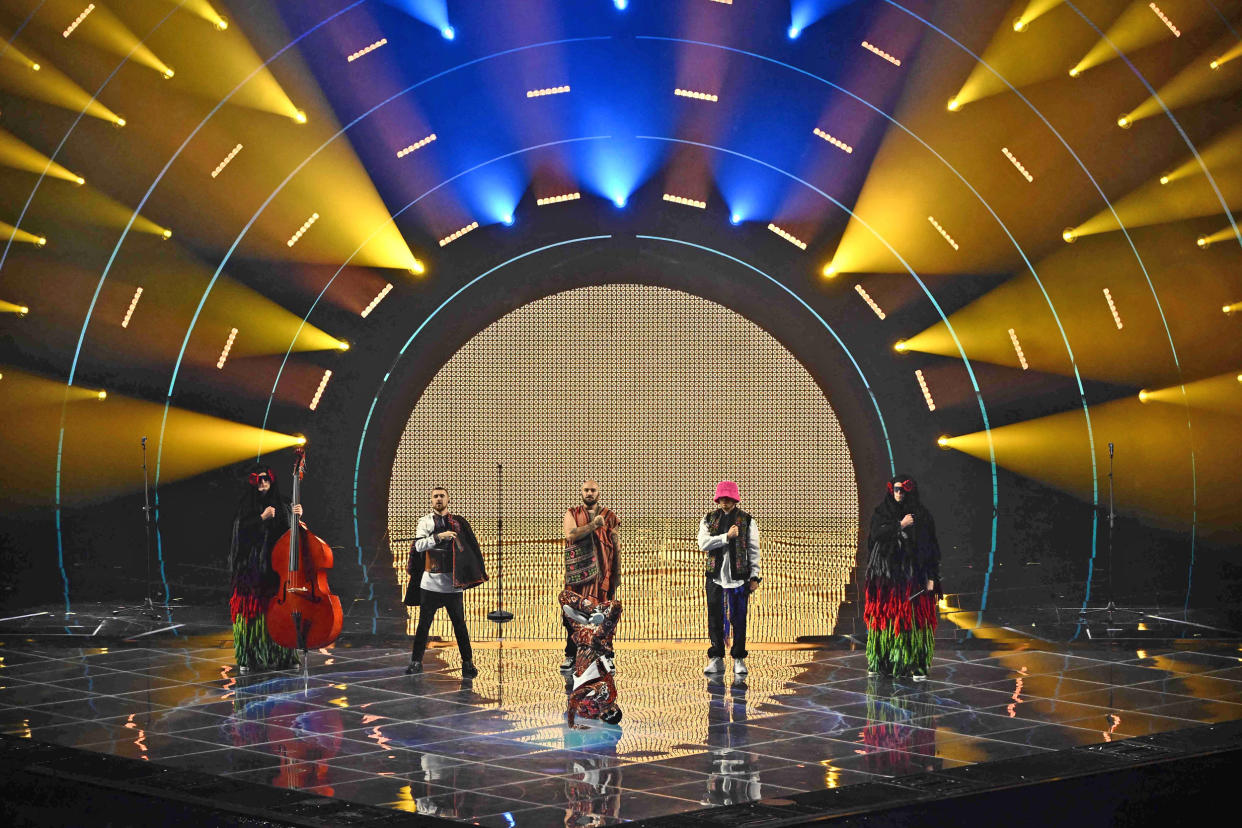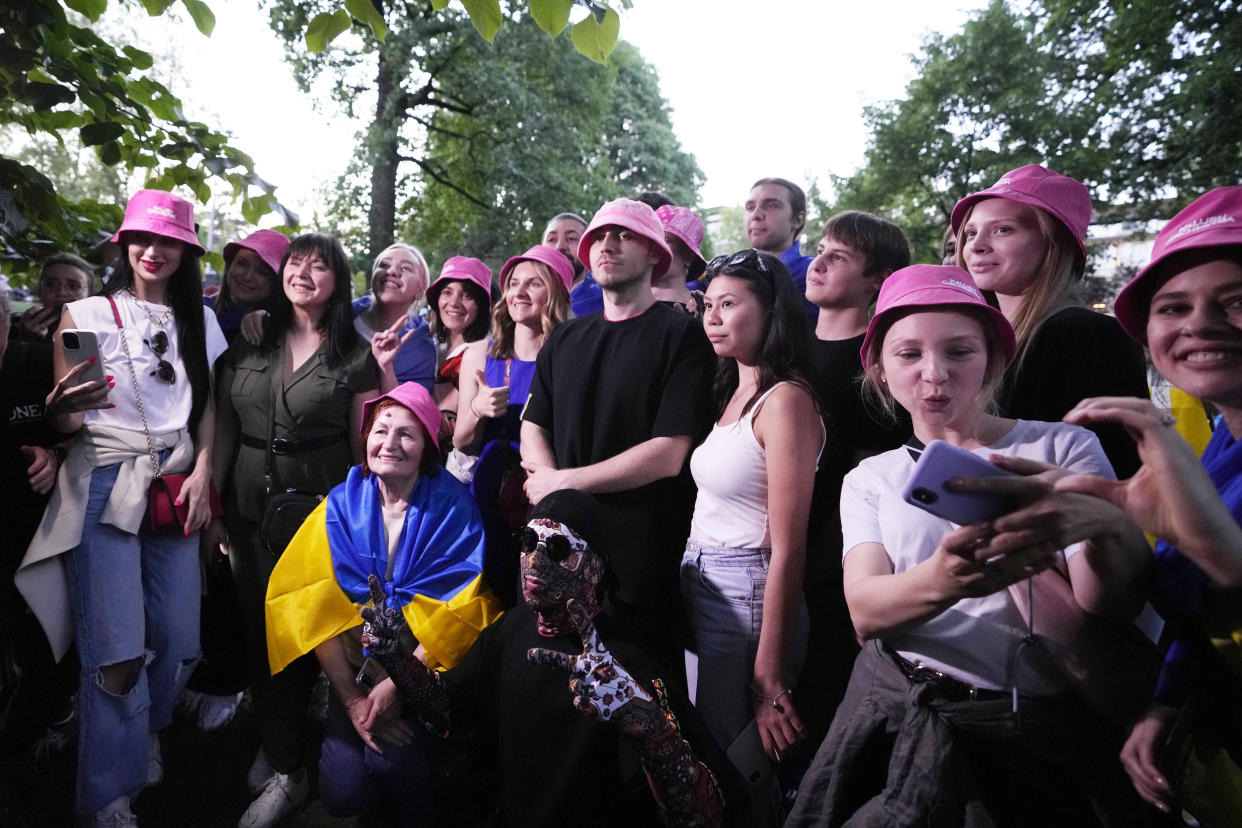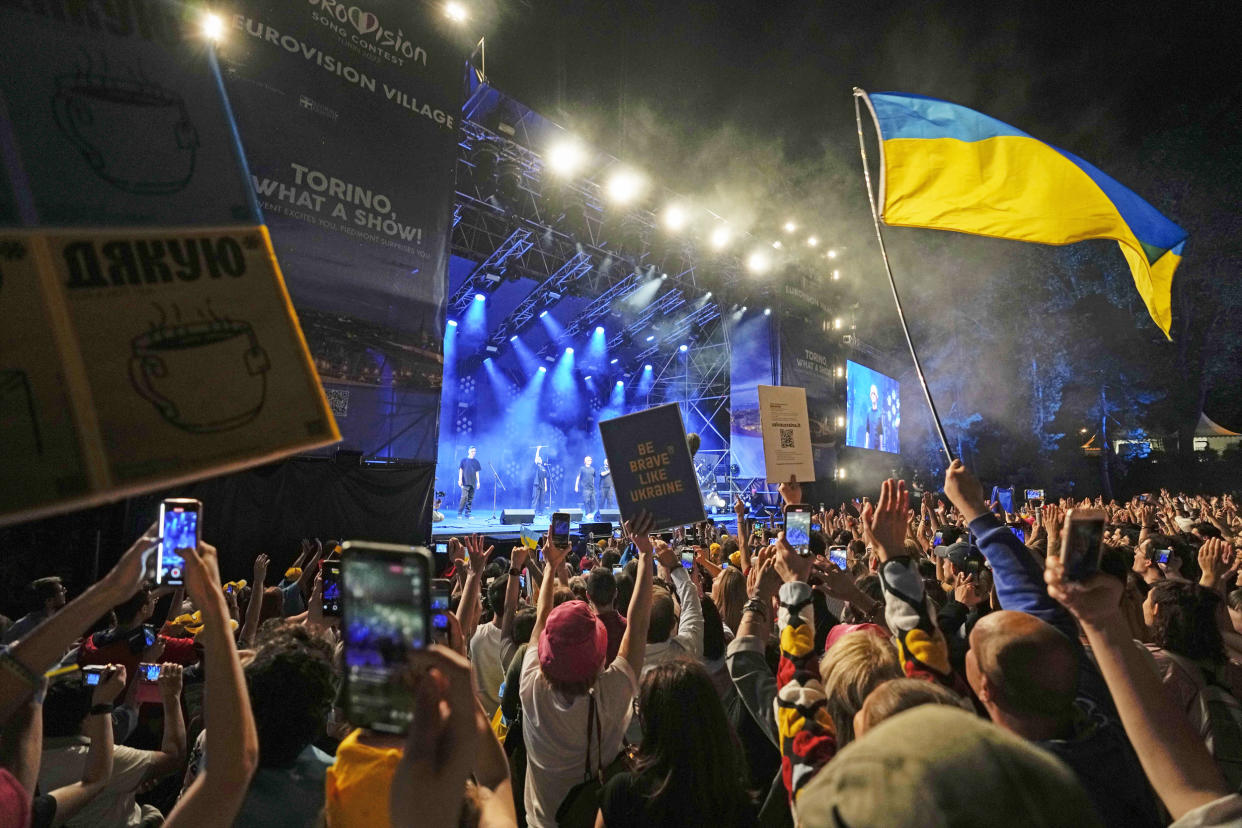Ukraine is a favorite to win Eurovision. Some fans have mixed feelings.
TURIN, Italy — Eurovision Village is buzzing. Known as Parco del Valentino on a normal day, this Eurovision Song Contest fan zone now hosts hundreds from all over, drawn by the festive atmosphere and bedecked in colorful flags from their home countries. One of those flags is ubiquitous: the blue and yellow of Ukraine.
It’s a stark reminder that this event — which pulls in 183 million viewers and will hold its grand final on Saturday night — is taking place this year as Russia’s war in Ukraine grinds into its third month. Contest organizers face the challenge of hosting a televised party while one of the competing countries is ravaged by war.
Among the 40 songs competing this year is the Ukraine entry “Stefania” by Kalush Orchestra. It blends traditional folk music with rap, and is one of the favorites to win, in part due to public sympathy for Ukraine. It qualified in a semifinal on Tuesday to make the final.

With countries competing from across Europe and even Australia, people travel from all over the world to attend the carnival-like atmosphere that comes with Eurovision. For many, there is a sense of inevitability to a Ukrainian win.
“It’s a no-brainer this year that they’re going to win,” according to Nicklas Wikblad, 37, who works in marketing in Stockholm and was draped in a Swedish flag outside a stall selling beer.
Wikblad was attending the contest with Grace Pan, 28, an American living in Stockholm and working in e-commerce. Pan hoped that a strong Swedish showing would allow the best of both worlds. “If Sweden comes in second, then we can co-host with Ukraine next year and that would be a nice Eurovision message,” she said.
Another fan packed into the village for Thursday’s semifinal was Bea Blanco, 30, a lab technician in Cordoba, Spain. Donning a Spanish flag, she said she thought Ukraine would win, but was not thrilled with the idea.
“The song is OK, but I think it’s not a winner’s song,” she said. When asked if it was OK for a song to win on sentiment and not merit, she said, “For me, no, but it is what it is.”
Gavin Williams, 32, a lawyer from the British city of Bristol, who was with a group of friends all wearing Union Jack sunglasses, sees a potential Ukrainian win as a sign of European unity. “I think it’s a good sort of representation of the community of Europe coming together to support Ukraine, and if that happens that’s a great result,” he said.

The winner every year is decided by a combination of votes by the public in each participating country and national juries of music experts. The contest is being held in Turin this year because the Italian band Måneskin won last year.
If Ukraine were to win, an obvious logistical issue would be whether the country could physically host the 2023 contest, given the damage wrought by the war. The European Broadcasting Union, or EBU, which runs Eurovision, said in a statement to NBC News that they could not speculate on contingency plans for a Ukrainian win.
“Once we have crowned the winners on Saturday night we’ll start to look at those kind of decisions in the following weeks, no matter who the winners are,” they said.
Russia, long a powerhouse in Eurovision, was banned from the contest by the EBU after the country invaded Ukraine in late February.
The EBU has often tried to walk a tightrope in keeping the contest nonpolitical, despite competing states sometimes being involved in conflicts.
Officially, songs must be nonpolitical, though Ukraine entered the contest in 2016 with a song about the expulsion of Crimean Tatars by Soviet forces in the 1940s. Coming on the heels of the Russian annexation of Crimea in 2014, the song proved controversial, though the EBU decided it did not breach its ban on political speech, and it went on to win the contest.

As with much else in the current conflict, the Russian perspective on Eurovision will be vastly different from the rest of the world’s. Russians will not be able to watch the contest on television, as the Russian broadcasters that were EBU members withdrew after Russia was banned. EBU will not block the online feed for viewers in Russia, the statement said.
Direct displays of support for Ukraine in the shows so far have been muted, but a member of the Icelandic band Systur and the Lithuanian contestant Monika Liu waved Ukrainian flags in the green room as they qualified for the final. A member of the Czech delegation also sported a “No War” shirt backstage.
“Thank you for supporting Ukraine,” Oleh Psiuk, a rapper from Kalush Orchestra told the crowd after performing in the first semifinal on Tuesday.
The three hosts of the contest, Laura Pausini, Alessandro Cattelan and Mika, have avoided directly mentioning the war, though they seemed to obliquely address the world’s divisions at the opening of the show on Tuesday.
“Nothing brings people together like art and music. It’s powerful, it’s beautiful, and right now we need it more than ever,” Mika said.
Cattelan added: “The songs will come to help us with their messages of liberty, love and peace.”
